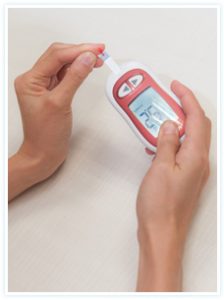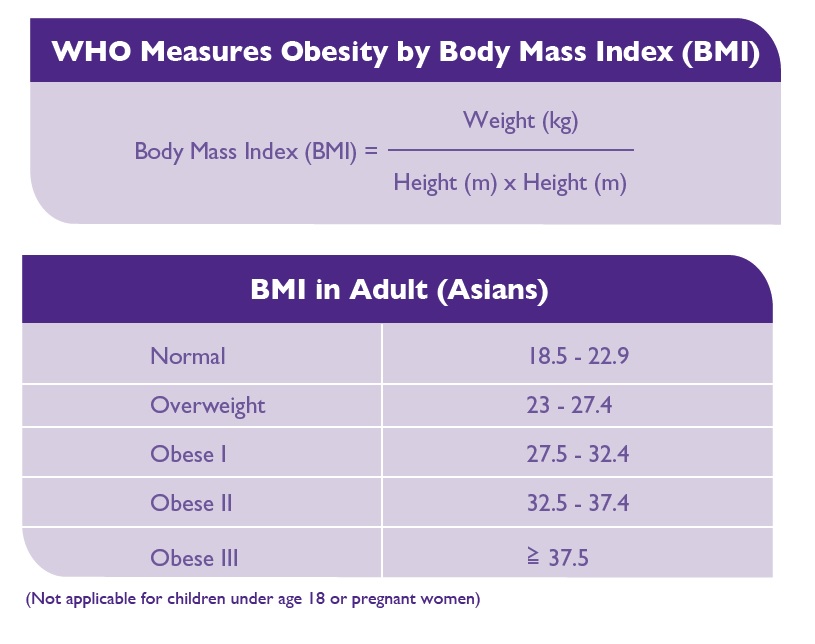- Introduction
- Service Hours & Contact
- Doctor
- Integrated Weight Management Programme
- Package Offer
- Leaflet
The Diabetes and Endocrinology Centre
The Diabetes and Endocrinology Centre, in collaboration with other departments of the Hong Kong Baptist Hospital including departments of Pathology, Heart Centre, Dietetics, Ophthalmology and Podiatry Service, provides comprehensive service for patients with diabetes and endocrine diseases. The Centre is committed to offering holistic treatment and care to patients, in particular patient education, prevention and management of diseases and complications.

Diabetes Mellitus (DM)
DM is a metabolic disease by which people cannot regulate the blood glucose (sugar) level. This can be due to insufficient insulin production or insulin resistance, so that, glucose cannot be consumed as energy source effectively, resulting in high blood glucose level, while extra glucose will be excreted in urine. High blood glucose levels may lead to acute or chronic complications.
- Acute Diabetic Complication: High blood glucose with the presence of ketone in the body is a feature of diabetic ketoacidosis or hyperosmolar non-ketotic hyperglycaemia. Patient may present with nausea, vomiting, abdominal pain, marked dehydration and even coma, which is a life threatening medical emergency.
- Chronic Diabetic Complications: Persistent high blood glucose levels may lead to vascular and nerve damages, which in turn affect organ functions as followings:
- Retinopathy – Diabetes is one of the leading causes, blindness may result if retinopathy gets worse.
- Kidney Disease – Diabetes is one of the most common causes of renal failure, 20% to 40% diabetic patients suffered from it.
- Heart Disease and Stroke – Diabetic patients are more likely to have heart disease and stroke.
- Neuropathy and Peripheral Vascular Diseases – Symptoms like painful tingling sensation in legs, numbness and ulcers are commonly found in diabetic patients. Ulcers may easily become In serious case, amputation may be required. Consult a podiatrist when necessary.
- Sexual Dysfunction – More than 10% of male patients suffer
Endocrine Diseases
Endocrine Diseases are related to malfunctioning of endocrine system. Endocrine system comprises a number of endocrine glands which produce and release hormones to control important haemostasis, such as growth development, tissue function, metabolism, sexual function and reproduction. Our centre provides diagnostic tests and management to patients with challenging endocrine diseases.
- Thyroid disorder: Thyroid gland syntheses and secretes thyroid hormone which regulate our body metabolism. Common disorders of thyroid gland include hyperthyroidism, hypothyroidism and thyroid nodule.
- Pituitary disorder: Pituitary gland secretes the major types of hormones among all endocrine glands. Common tumors arising from pituitary gland include prolactinoma, growth hormone adenoma (acromegaly), Cushing’s disease and non-functioning pituitary adenoma.
- Adrenal disorder: Adrenal gland secretes hormones to regulate the body fluid balance and osmolarity. Three main functioning adrenal tumors are Conn’s adenoma, pheochromocytoma and Cushing’s syndrome.
- Metabolic syndrome: It refers to a cluster of metabolic risk factors including central obesity, high triglyceride level, low HDL-cholesterol, hypertension and diabetes, which increases the risk of cardiovascular disease.
- Osteoporosis: Decrease of estrogen level will result in higher bone fracture risk in postmenopausal women.
- Polycystic ovarian syndrome (PCOS): Majority of patients are obese and present with hirsutisim (increase hair growth) and menstrual irregularity.
Diabetes & Endocrinology Centre Service Hours:
| Monday & Friday | 9:30a.m. to 12:00p.m. 3:00p.m. to 5:30p.m. |
| Wednesday | 3:00p.m. to 5:30p.m. |
| Saturday | 10:00a.m. to 12:30p.m. |
| Sunday and Public Holidays | Closed |
For enquiries and appointments, please contact us at: (By appointment only)
Our centre also provides service at HKBH’s own Medical Centre — HKBH East Kowloon Medical Centre (EKMC). For more details, please check below,
| Tuesday & Thursday | 9:30a.m. – 12:00p.m.; 3:00p.m. – 5:30p.m. |
| Wednesday | 9:30a.m. – 12:00p.m. |
| Sunday and Public Holidays | Closed |
For enquiries and appointments, please contact us at: (By appointment only)

Integrated Weight Management Programme
Integrated weight management programme is an one-stop weight loss platform designed by multidisciplinary professional team. Team members, including endocrinologist, dietitian, physiotherapist and dedicated nurse, will tailor make a safe and personalized scheme for those with obesity. If treatment outcome is suboptimal, pharmacological approach can be considered, and further referral can be made to surgeon and psychologist to assess the suitability of metabolic surgery, when appropriate.
Targets:
Adult with BMI 27.5 or above. Enquiry from patient with chronic diseases who is overweight (BMI 23 or above) is also welcomed.
What is Obesity
World Health Organization (WHO) defines obesity as excessive accumulation of fat that presents a risk to health. Obesity is a risk factor for a number of chronic diseases, including cardiovascular disease, stroke, type 2 diabetes mellitus, hypertension, degenerative arthritis, kidney disease and certain types of cancer etc.
Possible underlying endocrine causes of obesity can be identified through medical assessment and treated appropriately. After exclusion of pathological causes, diet modification and exercise are the cornerstones of any obesity management. Dietitian and physiotherapist will guide patient to achieve appropriate and feasible weight loss through establishing proper eating and exercise habit. A modest weight loss of 5%-10% of the initial body weight, generally at a rate of 1 to 2 pounds per week, and maintenance of that weight loss can reduce risk of chronic disease.
Programme Details
| Part I # | ||
Health Examination & Consultation |
||
| Endocrinologist’s Physical Examination & Consultation (2 visits) | * | |
| Nurse Assessment | * | |
| Body Composition Analysis | * | |
| Investigation Report | * | |
Ultrasound Examination |
||
| USG Upper Abdomen | * | |
Cardiac Examination |
||
| Electrocardiogram | * | |
Laboratory Tests |
||
| Complete Blood Count, Liver Function Test, Renal Function Test, Lipid Profile Tests, Glucose (Fasting), Haemoglobin A1c, Thyroid Stimulating Hormone, Calcium, Inorganic Phosphates, Routine Urinalysis | * | |
| Cortisol – Overnight Dexamethasone Suppression Test (ONDST) (#Test on separate day) | * | |
| Part II # | ||
Endocrinologist Consultation(3 Visits at 1st, 3rd & 6th Month) |
* | |
Dietitian Programme(5 Visits / 6 Months) |
* | |
Physiotherapy Programme(6 Visits / First 6 Months) |
* | |
| Part III | ||
Physiotherapy Programme(6 Visits / Another 6 Months) |
* | |
Remarks
- # Participants in this programme must be assessed by doctor for their suitability.
- The effect of weight loss varies individually. Patient should follow the guidance of dietitians and physiotherapists to work for a balanced diet and moderate exercise. This programme does not guarantee weight loss.
- If treatment outcome is suboptimal, pharmacological approach can be considered, and further referral can be made to surgeon and psychologist to assess the suitability of metabolic surgery, when appropriate.
Diabetes & Complication Screening with Cardiovascular Risk Assessment
| Items |
DM Complication Screening |
DM Complication Screening with Cardiovascular Risk Assessment |
| Health Examination & Assessment | ||
| Physical Examination by Endocrinologist | √ | √ |
| Nurse Assessment | √ | √ |
| Dietitian Consultation | √ | √ |
| Investigation Report | √ | √ |
| Screening for Eye Problem | ||
| Ophthalmologist Consultation | √ | √ |
| General Eye Examination by Ophthalmologist | √ | √ |
| Fundus Photography | √ | √ |
| Screening for Foot Problem | ||
| General Foot Examination | √ | √ |
| Vibration Perception Threshold | √ | √ |
| 10g Monofilament Foot Sensation Test | √ | √ |
| Cardiac Examinations | ||
| Electrocardiogram | √ | √ |
| Echocardiogram | √ | |
| Treadmill Exercise Test | √ | |
| Laboratory Tests | ||
| Complete Blood Count | √ | √ |
| Renal Function Test | √ | √ |
| Liver Function Test | √ | √ |
| Lipid Profile Tests | √ | √ |
| Fasting Glucose | √ | √ |
| Haemoglobin A1C | √ | √ |
| Oral Glucose Tolerance Test | ||
| Calcium | √ | √ |
| Inorganic Phosphates | √ | √ |
| Routine Urinalysis | √ | |
| Urine Microalbumin/Creatinine Ratio | √ | √ |
For enquiry, please call




